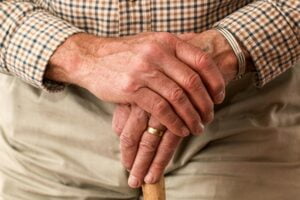You don’t have to be in the desert to experience dehydration. It’s happening every day.
Research shows that around a fifth of people in long-term residential care homes are dehydrated, but there are no figures for dehydration within the community, where it is thought to be quite common. Older people, children, babies and people with disabilities are more at risk, and untreated. it could become a serious problem.
But there is much that carers, relatives and people themselves can do to reduce the risk of dehydration.
Understand the risk
Dehydration leads to low blood pressure, which can exacerbate heart problems, and is associated with increased risk of falls, constipation, mental confusion, tiredness, kidney problems and urinary infections. Dehydrated skin is drier and more fragile, and increases the risk of pressure sores in people who are unable to move around much.
If you are wondering why older or less mobile people become dehydrated, remember what it feels like when you are ill. The effort required to get yourself a drink can feel like too much, so you ignore your thirst. There is also evidence that the ability to recognise thirst decreases as you age. In some cases, people with memory problems may simply forget to drink.
Tips to prevent dehydration
Ensure there is a large jug of fresh water and a glass within easy reach of the person being cared for. Colourful jugs may help, which is why some NHS hospitals use red jugs to act as a prompt to patients and carers.
Make sure they drink at mealtimes, but try to make drinking a social occasion between meals too – when you visit sit down for a cup of tea, a glass of water, juice or even beer. If water is unappealing, try adding a sprig of mint or a slice of lemon to make it tastier and a bit more glamorous.
Much of our water intake comes from foods, so offer those with a high water content, such as soup, fruit and vegetables.
Explain the importance of hydration, so they are motivated to help themselves.
Sally Graham, managing director of Avant Healthcare Services, says: “Our care and support workers are trained to help clients avoid dehydration. However, we know that dehydration is common in the wider community so we are running this campaign to make relatives and carers more aware of the dangers of dehydration and what they can do about it.”



